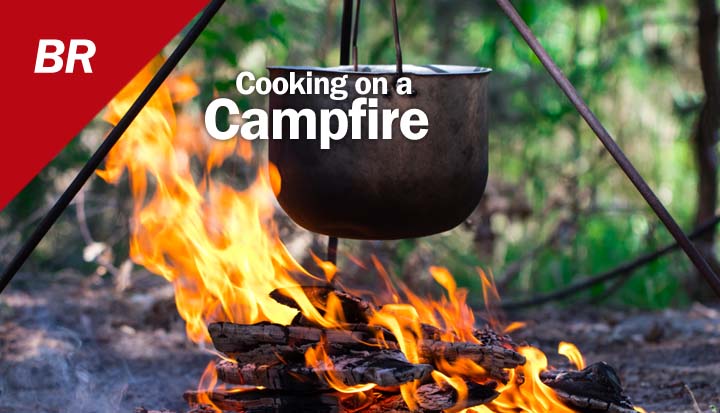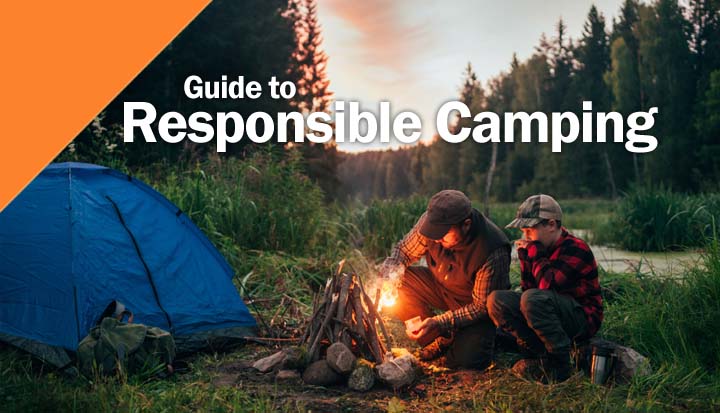Responsible camping starts with safety. Campers who put safety first will often be responsible and courteous at the same time. Planning is the key to a safe trip and therefore essential to be a responsible camper.
Young and old alike seem to enjoy being at one with nature. However, just as with any other activity, hiking safety is essential if you don’t want to get caught short. One of the first things you should do is plan ahead.
Plan ahead
I know I’ve been stressing the importance of planning ahead in other articles on my site, but I can’t stress it enough! Let others know that you are going camping, where you are going, and the approximate length of time you plan on being away.
Whatever it is that you bring into the camp you should take back out with you. You should immediately begin thinking about containers for garbage and such things as dirty clothes.
If you are camping in a primitive style you need to plan for your outdoor bathroom. It is suggested that you dig a small hole that can easily be filled back in and never use a body of water as a place for relieving yourself. Do not add any type of soap or detergent to a natural water system at any time either.
Always follow designated trails and roads
Although it may be tempting to go off-path and explore, it is for your own safety that you should stick to the worn trails. If you are driving a vehicle through a camping area keep in mind that horses, bicyclists and pedestrians should always be yielded to.
Respect your fellow camper
When you are camping you are in a more natural environment than usual. This is true for the other campers as well; people are different. Some camp to socialize with friends and family and others camp to spend some time in solitude. You may fall somewhere in between those extremes as I do but it is important to be respectful of other campers at all times.
It has even been suggested that campers should use tents and camping supplies of natural colors so they will blend in with the surroundings better. This will give a less intrusive appearance.
Keep your distance
Don’t camp any closer than is necessary to other campers, be respectful and keep your noise level down especially during late evening, night and early morning hours. You may be an early bird that loves to listen to the morning radio show but your neighbor may love to sleep until 9 or 10am and need 3 cups of coffee before they can think straight, it’s a simple matter of courtesy.
Do not harass any animals
This can result in you being harmed or worse as these animals will feel threatened and are likely to defend themselves in whatever way they can. Teach this lesson to your children as well to prevent possible injuries. Even attempting to feed a wild animal can have undesirable results, possibly tragic if you’re not careful.
First Aid kit
It is a good idea not to touch any plants that you are not familiar with. Many flora can cause rashes and allergic reactions. Be prepared for such emergencies by having a first aid kit on hand. Having insect repellent and insect or bug spray on hand is also a good idea. Don’t forget to add ointment to the first aid kit for insect bites as well.
Related Article: Checkout the Essentials Camping Checklist
Campfires
Campfires are a part of camping but if not properly doused or tended to, they can become a huge problem. Don’t forget to gather your firewood while it’s still light. Build your campfire in the appropriate location ensuring that it is not under tree branches or too close to tents. Be sure to keep a close watch over the fire. Keep a bucket of water nearby for dousing the fire before retiring.

Keep camping areas great places for everyone to enjoy!
Bananareview.com
When camping, keep safety in mind – followed by responsibility and courtesy.

